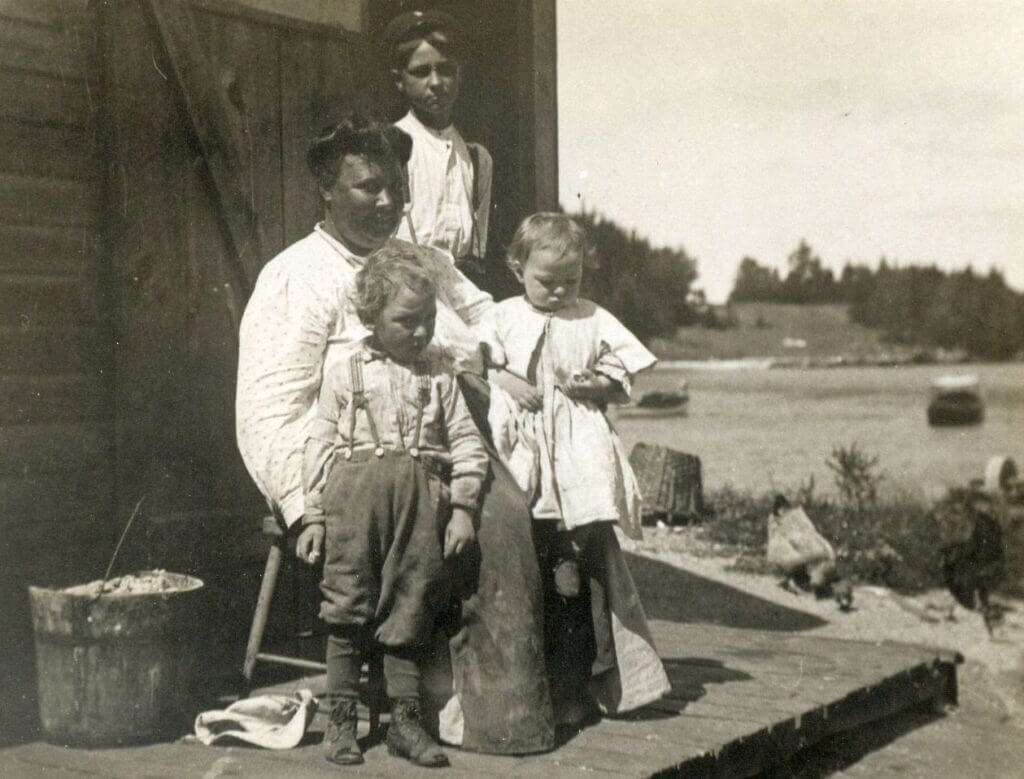Black History Month – Reflecting and Learning about Maine’s History
The History of Malaga Island

Maine’s history and relationship with Black communities is complex and requires a great deal of understanding. It is important to learn of Maine’s history because it provides context for how we got where we are today and gives us a deeper insight of the issues we still face in this country.
Malaga Island lies off the coast of Maine in Phippsburg. Its’ probable origins trace back to an African American man named Benjamin Darling. The Darling family and other black families were the first to settle on the island. Malaga’s community was racially diverse, consisting of Black, White, and mixed-race people. They relied heavily on local marine resources to sustain themselves. The community was left alone until the coast thrived with tourism.
Eugenics Movement
In the early 1900’s, the state of Maine enforced a Eugenics Movement. Eugenics is a concept that deals with improving the quality of humans by excluding people or groups that are thought to be inferior. This is a misinterpretation of human qualities and is fueled by prejudice. During this time, the press publicized a common belief that the only way to help Malaga Island’s residents was to improve tourism and property values and to dismantle the community. Although their efforts were to improve living conditions on the island, the notoriety of the island community in newspapers gave Phippsburg a bad reputation. Newspaper headlines such as “Homeless Island of Beautiful Casco Bay – Its Shiftless Population of Half-breed Blacks and Whites and His Royal Highness, King McKenney” and “Queer Folk of the Maine Coast” put forth beliefs that the individuals living on Malaga Island were degenerate and needed assistance to survive.
Eviction of Malaga Residents
In 1905, all residents of Malaga Island were named wards of the state under the jurisdiction of the Governor’s Executive Council. In 1911, State officials visited the island to meet the island’s residents and inspect their homes. They concluded the conditions were not creditable to the state. By 1912, the state of Maine purchased Malaga Island and forced residents to vacate. At this time, the state’s eviction strategy included an assessment of each household. They evaluated their physical, mental, and financial condition. Doctors deemed eight residents “feeble minded” and sent them to the Maine School for Feeble Minded. To complete the eviction, the state exhumed the cemetery remains on Malaga Island, combining seventeen individuals into five caskets, and moved them to the cemetery at the school.
The Outcome of the Eviction
The very idea that Black and White people could live together in a productive community was uncomfortable to so many on the mainland. People on the coast created the term “Malagite” as a racial slur to use against people on the island. Descendants began to hide their ancestry and connection to the island because they faced prejudice. Many of the descendants are scattered across the country and many are discovering their family history and connection with one another to this day.
Good Shepherd Food Bank’s Commitment to Equity
Good Shepherd Food Bank recognizes that poverty and food insecurity disproportionately impact people of color and is committed to leveraging its power as the largest hunger-relief organization in the state to redistribute resources directly to organizations and coalitions dedicated to meeting the needs of immigrants, refugees, Indigenous communities, and communities of color. The COVID-19 pandemic highlighted racial disparities within our food system that create unnecessary barriers for people of color to access the food they need when and where they need it.
We created the Communities of Color Emergency Fund, The Community Redistribution Fund, and the Cultural Celebrations Fund in response. To learn more about these funds and the work we’re supporting, please visit: www.gsfb.org/equity-and-impact.